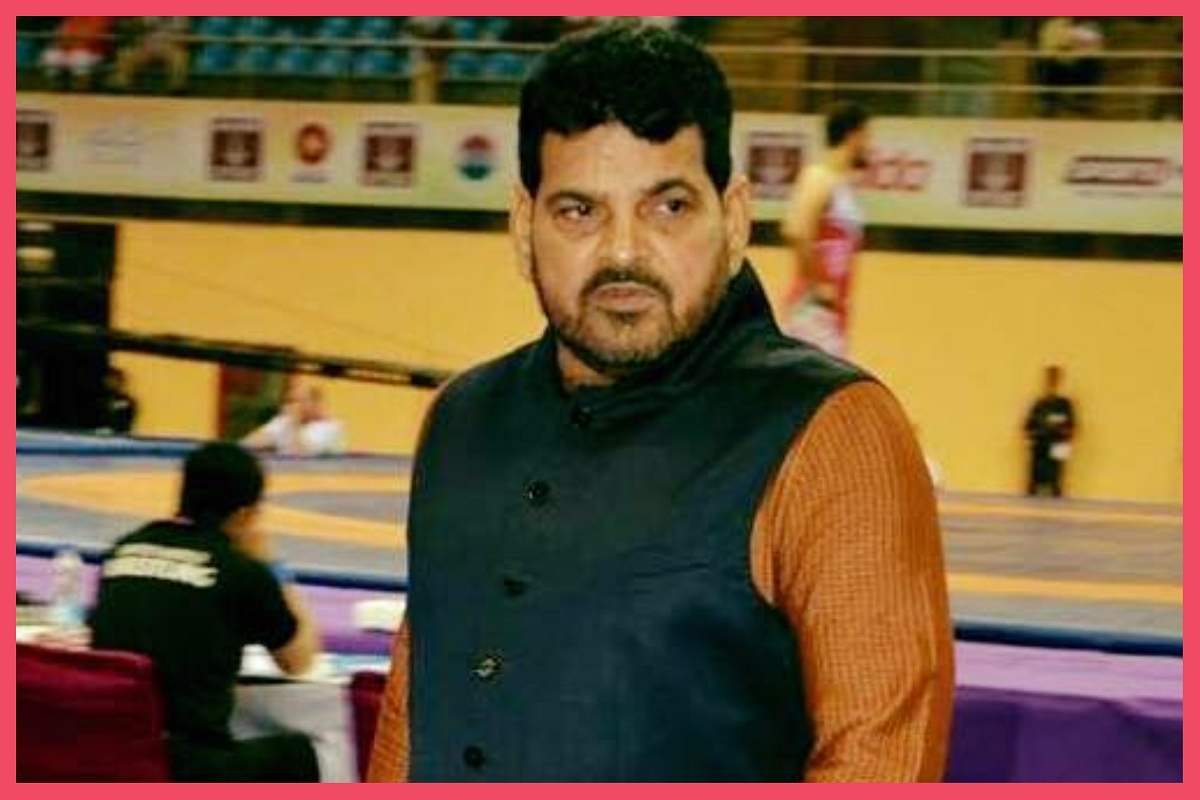News Brief
Wrestlers' Protest: This May Be Why Police Has Not Arrested Brij Bhushan Singh Yet

WFI Chief Brij Bhushan Sharan Singh (Facebook)
Subsequent to the intervention of the Supreme Court, the Delhi Police had registered FIRs against Brij Bhushan Singh.
The FIR has been registered under the Prevention of Children from Sexual Offences Act, 2012 (POCSO Act) and Sections 354, 354A & 354D of the Indian Penal Code, 1860 (IPC).
Section 354 deals with assault or criminal force on a woman with intent to outrage her modesty; Section 354A deals with sexual harassment of a woman; Section 354D deals with Stalking; and Section 10 of POCSO deals with aggravated sexual assault.
However, none of these offences prescribe punishment of more than seven years.
As per Section 41 of the IPC and in the landmark Arnesh Kumar Judgement the Supreme Court has clearly laid down that arrest of an accused is not mandatory for offences punishable with imprisonment below seven years.
In such cases, arrest can only be made if the investigation office is satisfied that there is a reason to believe that the accused committed the offence and the arrest is necessary.
Therefore, arrest can only be made once the investigating officer is prima facie satisfied that the accused committed the crime or the accused is not cooperating with the police officials in their investigation.
In particular circumstances, the police officials can arrest the accused during the investigation if the accused can destroy the evidence. However, if none of these conditions exist, the police officials are not obligated to arrest a person just because an FIR has been registered.
The criminal justice system in India works on the principle, ‘innocent until proven guilty’, and therefore relevant safeguards have been provided for the accused, so that he may not be subjected to unnecessary harassment from the authorities.
Generally, arrest is only made once the investigation officer is satisfied that the said crime was committed.
Only yesterday, the Delhi Police has said that it will be filling its final report on the matter within 15 days. Subsequent to which further course of action would be taken by the relevant court.
If the protesting wrestlers are not satisfied with the investigation being done by the relevant investigating officer, they can approach the concerned Magistrate under Section 156(3) of the CrPC.
Under the said provision if the magistrate is prima facie satisfied of the commission of the offence, he can direct proper investigation to be done, which includes recommendation to the SSP/SP for change in the investigating officer in order that proper investigation can be conducted.
The magistrate has powers to monitor the said investigation, though he cannot himself conduct the investigation which is the job of the police.
The minor wrestler had approached the Rouse Avenue Court in Delhi (the designated court to deal with MP/MLA related matters), under Section 156 of the Criminal Procedure Code with a plea to monitor the investigation in the matter.
However, the issue here is that the present case falls at the juncture of an MP being accused under the POCSO Act. For offences under the POCSO Act, the Patiala House Court in Delhi is the designated court.
Hence the confusion arises whether to approach the Rouse Avenue Court or the Patiala Court.
Therefore, the wrestler had approached the Delhi High Court to decide which court would have the powers to deal with the present matter.
The Delhi High Court has sought response from the Registrar General and the Principal Secretary of the Delhi Government to decide which court would have the jurisdiction and the matter has now been listed for the 6th of June.
Support Swarajya's 50 Ground Reports Project & Sponsor A Story
Every general election Swarajya does a 50 ground reports project.
Aimed only at serious readers and those who appreciate the nuances of political undercurrents, the project provides a sense of India's electoral landscape. As you know, these reports are produced after considerable investment of travel, time and effort on the ground.
This time too we've kicked off the project in style and have covered over 30 constituencies already. If you're someone who appreciates such work and have enjoyed our coverage please consider sponsoring a ground report for just Rs 2999 to Rs 19,999 - it goes a long way in helping us produce more quality reportage.
You can also back this project by becoming a subscriber for as little as Rs 999 - so do click on this links and choose a plan that suits you and back us.
Click below to contribute.
Latest